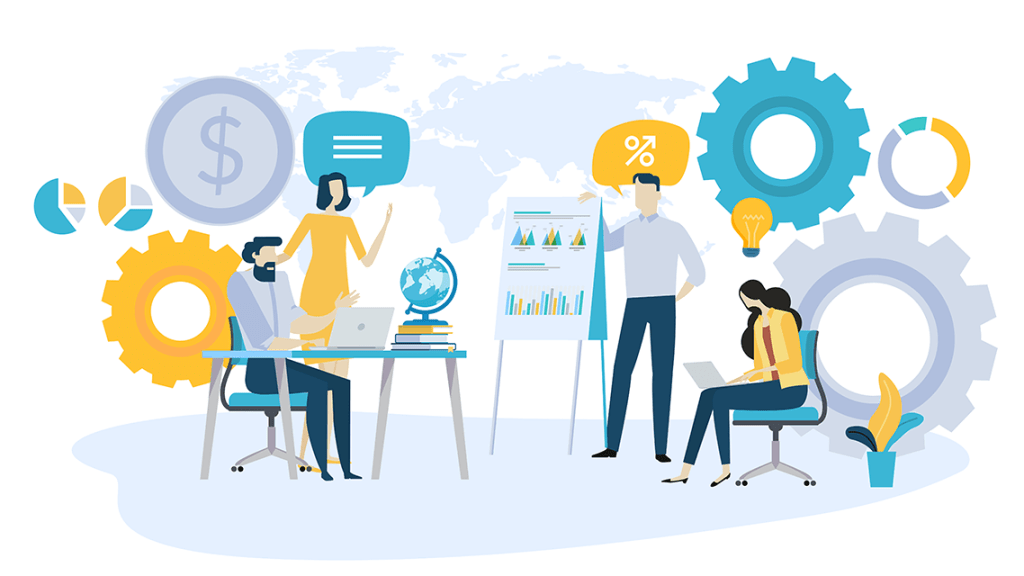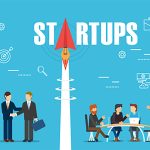Software Startups Market Highlight
Here are some highlights for the software startup market based on recent data and research:
- Growth: According to a report by Startup Genome, the global software startup ecosystem grew by more than 50% between 2014 and 2019.
- Investment: In 2020, venture capital investment in software startups reached a record high of $130 billion globally, according to Pitchbook data.
- Top regions: The United States remains the largest market for software startups, followed by Europe and Asia. The largest tech hubs in the US include Silicon Valley, New York, and Boston.
- Popular industries: The most popular industries for software startups include e-commerce, fintech, and SaaS (Software-as-a-Service).
- Job creation: Software startups are significant job creators, with more than 500,000 new jobs created in the US in 2020 alone.
- Mergers and Acquisitions: Mergers and acquisitions (M&A) activity in the software startup sector has been robust in recent years, with major tech companies such as Microsoft, Google, and Amazon acquiring startups to acquire new technology and talent. In 2020, the value of M&A deals in the software sector surpassed $400 billion globally.
- Remote work: The COVID-19 pandemic has accelerated the trend of remote work, leading to increased demand for software solutions that support remote collaboration and communication. This has created new opportunities for software startups offering these solutions.
- Artificial Intelligence: Artificial Intelligence (AI) is a rapidly growing area in the software startup market, with investment in AI startups reaching $12.9 billion in 2020, according to CB Insights. AI-powered solutions are being developed in a variety of industries, including healthcare, finance, and retail.
- Cloud Computing: Cloud computing is another rapidly growing area in the software startup market, with the global cloud computing market projected to reach $623.3 billion by 2023, according to a report by Grand View Research.
Sources:
- Startup Genome: Global Startup Ecosystem Report (2019)
- Pitchbook: 2020 Venture Capital Investment Report
- National Venture Capital Association: 2020 Venture Impact Report
- CB Insights: 2020 AI in Healthcare Report
- Grand View Research: Global Cloud Computing Market Report (2017-2023)
- Statista: Global M&A Deal Value by Sector (2020)
How to Launch a Software Startup : Important Stages
- Market Research: Conducting thorough market research to discover business opportunities and refine product ideas.
- Developing a clear value proposition and market entry strategy.
- Outlining the minimum viable product (MVP) features, selecting technology, designing the architecture, and planning the MVP project.
- Creating a proof of concept (PoC) to assess technical feasibility and presenting to potential investors (if desired).
- Securing a sustainable competitive advantage through patent(s) (if applicable).
- Launching the MVP.
- Gathering customer feedback, assessing product-market fit, and finding a successful revenue model through testing the MVP.
- Raising funds (if necessary).
- Continuously improving product-market fit, actively promoting the product and brand through marketing efforts.
Business Models that can be adopted for Software Startups
Multi-sided marketplace (or XaaS)
A Multi-Sided Marketplace (also known as X-as-a-Service) is a platform that connects two or more groups of users, typically service providers and service consumers. For example, Uber connects drivers and passengers.
Revenue models for this type of marketplace include commission-based and subscription-based models. Prominent examples of Multi-Sided Marketplaces include eBay, Uber, Airbnb, Spotify, and LinkedIn.
For e-commerce marketplaces, it is essential to focus on the following areas:
- An efficient e-commerce platform that enables the creation of a multi-vendor marketplace (e.g. Magento).
- A robust search and recommendation engine to improve user experience.
- Marketing automation tools to drive growth.
- Guaranteed protection of business and personal data for increased security.
- Price adjustment features to optimize pricing strategies.
Software-as-a-Service (SaaS)
Software-as-a-Service (SaaS) is a software delivery model in which the software is provided to customers on a subscription or pay-per-use basis. Building customer loyalty is a key focus in this business model. Prominent examples of SaaS companies include Salesforce.com, Dropbox, and Netflix.
When launching a SaaS business, it’s important to focus on the following key elements:
- Recurring payment functionality for subscription-based plans.
- A freemium pricing model with entry-level functionality being offered for free and more advanced features available at a cost.
- A well-designed conversion funnel to convert free users into paying customers.
- A scalable infrastructure that can accommodate a large number of free users.
- The ability to offer bulk licensing options for enterprise customers.
User-generated content
User-Generated Content refers to digital content that is created by users and can be monetized through advertising or the sale of data segments. Applications for this business model are often offered for free or at low cost and are then monetized later. Examples of companies utilizing this model include Instagram, TikTok, and Snapchat.
When launching a business model based on user-generated content, the following areas should be a key focus:
- Attracting high volumes of traffic to the platform.
- Implementing advertising and targeted marketing through the use of cookies.
Data collection
Data Collection refers to the process of gathering information and deriving value through the sale of research services or aggregated, de-identified data. Companies such as Google and PatientsLikeMe have leveraged this business model.
When launching a data collection business, it’s important to focus on the following key elements:
- Attracting a large volume of traffic to the platform.
- Developing powerful data analytics capabilities, including the ability to process and analyze big data.
- Implementing robust security measures to protect sensitive data.
- Ensuring software and infrastructure scalability to accommodate growth.
Strong Competitive Differentiators
Monetizing on Privacy
The increase in companies that profit from collecting consumer data has led to a growing demand for software that prioritizes privacy. As a result, privacy-focused solutions such as DuckDuckGo, a privacy-focused search engine, have become more sought after. With privacy concerns at an all-time high, customers are seeking software that values their privacy and ensures the protection of their personal information.


Advance Technology
Startups have a unique advantage in being able to deliver innovative products and services that can provide a competitive edge. In today’s market, market leaders rarely lead the charge in groundbreaking innovations. Artificial Intelligence, Machine Learning, Internet of Things, Blockchain etc are providing unique opportunities to startup with various applications.
Monetizing on Privacy
Being attuned to the challenges and questions that your customers may face. Taking a proactive approach in offering solutions and providing answers to potential problems. Ensuring that customers derive the maximum benefits from using your product or service.

Planning to Deliver New Software Product or Online Services ?
Nearly a quarter of startups attribute their downfall to a lack of the appropriate team. Building a strong team demands a considerable investment of time, money, and management resources. Ways and Means Technology offers a one-click solution with their team of professional business consultants and developers to help you with:
- Design of market entry strategy
- Idea productization
- Planning and technology selection for product development
- Swift development and deployment of new software product
Frequently Asked Questions
What is a software startup?
A software startup is a company that provides software solutions and services to its customers. It is a company that is focused on developing and bringing innovative software products to market.
What are the key aspects of building a software startup?
Key aspects of building a software startup include market research, defining the value proposition, product development, customer testing and feedback, and marketing. It’s also important to have the right team in place, access to funding, and a solid business plan.
What are the challenges faced by software startups?
Some common challenges faced by software startups include competition, market saturation, securing funding, attracting and retaining customers, and keeping up with the latest technology.
How can I ensure the success of my software startup?
To ensure the success of a software startup, it is important to have a strong understanding of the market, a clear value proposition, and a solid business plan. Additionally, having the right team in place, access to funding, and a focus on continuous improvement and innovation can also help ensure success.
How do I attract and retain customers for my software startup?
Attracting and retaining customers for a software startup requires a strong understanding of customer needs and a focus on providing exceptional customer service. Marketing strategies such as content marketing, search engine optimization, and social media marketing can also help attract new customers.


